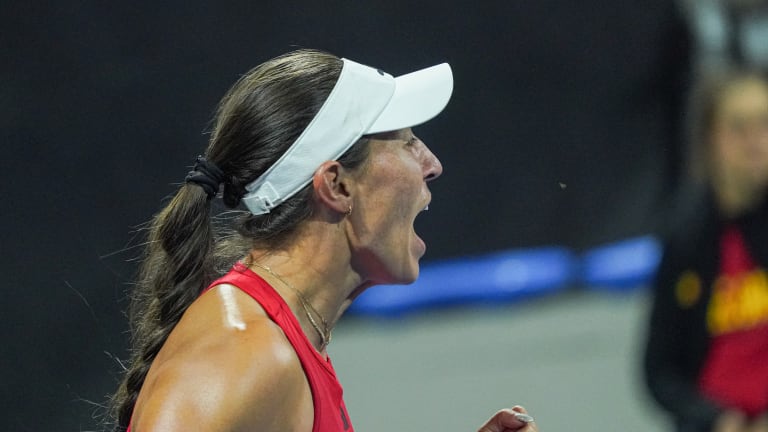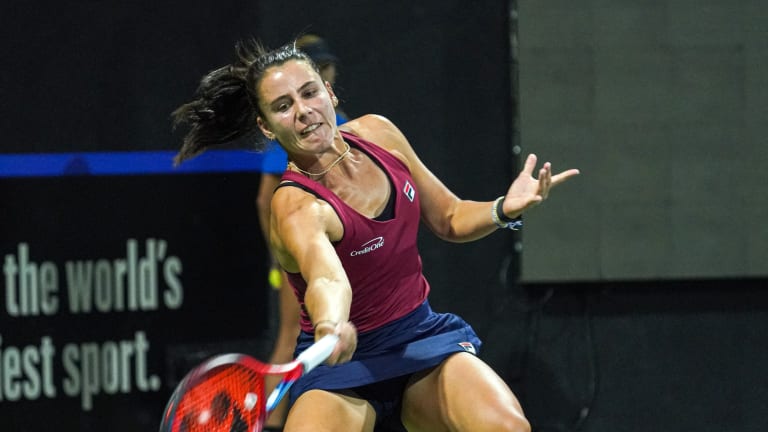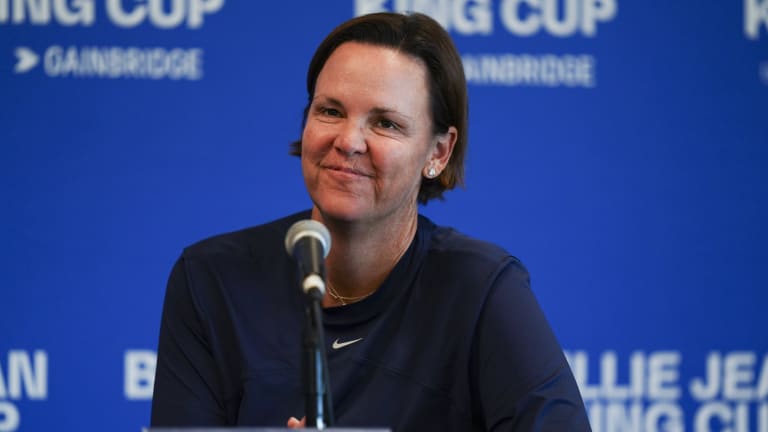Billie Jean King Cup
New life has been breathed into the Billie Jean King Cup, and team USA
By Apr 21, 2024Billie Jean King Cup
US Open junior champion Jeline Vandromme leads Belgium to 2026 Billie Jean King Cup Qualifiers on 18th birthday
By Nov 17, 2025Billie Jean King Cup
Movie buff Zeynep Sönmez is flying the flag for Türkiye
By Nov 15, 2025Billie Jean King Cup
First Billie Jean King Cup match in Malaga postponed following severe weather warning
By Nov 13, 2024Billie Jean King Cup
Billie Jean King Cup Finals relocated to Malaga, will run concurrently with Davis Cup Finals
By Jul 17, 2024Billie Jean King Cup
Jessica Pegula returns to form, leads U.S. past Belgium in Billie Jean King Cup Qualifier
By Apr 15, 2024Billie Jean King Cup
Led by Elina Svitolina, Ukraine turns to Amelia Island as home venue for BJK Cup Qualifiers
By Apr 10, 2024Billie Jean King Cup
Where does the Billie Jean King Cup go from here?
By Oct 25, 2023Billie Jean King Cup
Gauff, Pegula, Swiatek won't play in the Billie Jean King Cup Finals after the WTA Finals
By Oct 09, 2023Billie Jean King Cup
Saudi Arabia enters female team at ITF event for first time
By Feb 23, 2023New life has been breathed into the Billie Jean King Cup, and team USA
On last week's installment of the international team competition, and the weeks to come.
Published Apr 21, 2024
Advertising

Fueled partly by patriotism and partly by growing interest in team competition—Pegula also enjoyed playing on the co-ed United Cup back in January—BJK Cup may be achieving greater gravitas.
© BELGA MAG/AFP via Getty Images
Advertising
Advertising

In Pegula, a seasoned Top 5 veteran, and Navarro, who is staking out her turf as one of those players who just knows how to win, the U.S. now appears to have the nucleus of a dedicated team.
© BELGA MAG/AFP via Getty Images
Advertising

“They struggled in the tie, but found a way to win and it had a lot to do with Lindsay being there,” said former U.S. captain Mary Jo Fernandez.
© Getty Images for ITF